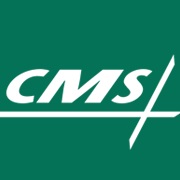Payers and CMS Seek to Join Accountable Care Organizations
The CMS model for accountable care organizations involves population health management, patient-centered care, and incentives to help providers strive for the Triple Aim.

- Healthcare payers seeking to reduce costs of medical services would benefit from partnering with accountable care organizations, which essentially seek high quality care in value-based payment arrangements. With a stronger focus on population health management, accountable care organizations may be the ticket that will bring the healthcare industry greater achievement in the Triple Aim – better medical services and improved health outcomes at lower cost.

However, many healthcare providers are being cautious in joining an ACO due to the increase in health IT costs, potential reductions in reimbursement for not meeting quality metrics, and the spending associated with maintaining many of the systems and programs necessary for accountable care organizations to flourish.
The Centers for Medicare & Medicaid Services (CMS) have set up a framework – the Medicare Shared Savings Program – that many payers and providers could follow. The model for accountable care organizations created by CMS involves population health management, patient-centered medical care, and monetary incentives geared to help providers strive for the Triple Aim.
Aetna pursues accountable care
The major insurer Aetna has pursued value-based care payment arrangements and accountable care after CMS set its example with the Medicare Shared Savings Program and Pioneer Accountable Care Organizations. Last week, Aetna announced in a press release that the payer signed onto an accountable care agreement and partnered with the Delaware Valley Accountable Care Organization (DVACO).
“This is an exciting development for Aetna and its members in Southeastern Pennsylvania,” Laurie Brubaker, President of Aetna’s operations in Pennsylvania, West Virginia and Delaware, said in the press release. “We’ve been building value-based relationships with physicians in Pennsylvania for the past couple of years, and we’re delighted to work with DVACO to improve care and the patient experience for our members.”
The two entities hope to improve the patient experience along with the quality and efficiency of care. The value-based payment model has a strong focus on population health management and improved health outcomes for patients in in Southeastern Pennsylvania.

“This collaboration with Aetna comes on the heels of our very successful first year in the Medicare Shared Savings Program and allows us to expand our ability to positively transform health care delivery in the greater Philadelphia area,” Katherine Schneider, M.D., M.Phil., FAAFP, president and CEO at Delaware Valley ACO, said in a public statement. “At DVACO, our primary focus is to deliver a valuable experience to our communities through high-quality care and effective coordination between health care providers and this innovative collaboration with Aetna will extend our population health capabilities to benefit non-Medicare commercially insured residents in our region.”
The agreement to pursue an accountable care model will impact approximately 70,000 current Aetna members who also have primary care providers working under the Delaware Valley Accountable Care Organization.
Currently, Aetna is seeking to slowly move away from fee-for-service payment arrangements and embrace value-based care reimbursement. A revolution around value-based care is taking place around the nation as more payers and providers partner to reduce the ongoing rise in healthcare costs, enhance patient outcomes, put an end to duplicative testing, and broaden access to medical care.
Accountable care organizations aim to improve care coordination among multiple teams and medical care providers, enhance the patient experience through greater health information access and tools, and bring better health outcomes for the patient community.
The value-based payment arrangement between Aetna and the Delaware Valley Accountable Care Organization is focused on rewarding the ACO financially for meeting quality metrics, reducing costs, and increasing patient satisfaction. This may include a decrease in hospital readmissions and emergency room visits as well as improving diabetes care and boosting the number of cancer screenings pursued by the ACO members.
“I, and many of my physician colleagues, are excited for this partnership with Aetna that will ultimately extend our ability to transition even more patient visits to value-based care,” Dr. William Greer, primary care physician and DVACO Board member, stated in the press release. “This new relationship is another step forward in transforming our health care model to one that focuses on maintaining ongoing relationships with our patients to keep them well and proactively promote their health, in addition to caring for them when they are sick.”
Along with the Medicare Shared Savings Program, CMS is seeking more opportunities to tie value-based care payments to reimbursing Medicare and Medicaid providers that meet benchmarks aimed at higher quality care. Last year, CMS Secretary Sylvia Burwell announced that the agency will be linking a specific percentage of Medicare reimbursement to quality care through Alternative Payment Models, bundled payments, and accountable care.
Medicare Advantage plans and value-based care
 Health Affairs reports on one issue regarding this CMS statement. Medicare Advantage plans are excluded from this type of value-based reimbursement. However, Medicare Advantage plans are predicted to double enrollment numbers to 22 million beneficiaries by 2020. Additionally, Medicare Advantage beneficiaries take up 31 percent of all Medicare members.
Health Affairs reports on one issue regarding this CMS statement. Medicare Advantage plans are excluded from this type of value-based reimbursement. However, Medicare Advantage plans are predicted to double enrollment numbers to 22 million beneficiaries by 2020. Additionally, Medicare Advantage beneficiaries take up 31 percent of all Medicare members.
One potential reason for CMS excluding Medicare Advantage plans from the value-based reimbursement benchmark may be due to its fully capitated payments structure, which already offer a value-based payment model.
However, the Health Affairs authors argue that CMS should surely include Medicare Advantage plans in the goals of the CMS value-based payment approach. This could lead to a more significant stronghold on stopping healthcare costs from rising any further.
As the federal government, state agencies, healthcare providers, and payers partner together to achieve the Triple Aim, accountable care organizations and population health management will continue to gain popularity.
